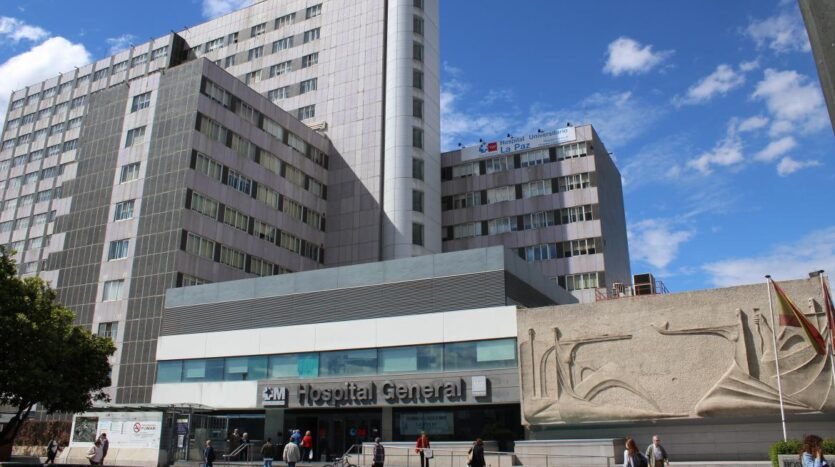Healthcare in Spain: What You Need to Know Before You Travel
Understanding healthcare in Spain is essential for travelers, especially if you’re planning a longer stay or have medical conditions. Whether you’re visiting as a tourist, on a business trip, or for an extended stay, this guide covers everything you need—from how to see a doctor, where to buy medicine, smoking rules, and tips for those with food intolerances or celiac disease.
How to Access Medical Care in Spain as a Foreigner?
If you’re wondering how to see a doctor in Spain, here’s what you should know:
Emergency healthcare in Spain is guaranteed for everyone—residents and visitors alike. Emergency care is provided at public hospitals and certain health centers, regardless of nationality.
For non-emergency medical needs, care is available at public and private clinics. Private healthcare in Spain requires direct payment, so travel insurance is highly recommended.
European Union Citizens
If you’re from an EU country, or from Switzerland, Norway, Iceland, or Liechtenstein, and have the European Health Insurance Card (EHIC), you are entitled to free or reduced-cost public healthcare for medically necessary treatment during your stay—as long as your visit is not for planned medical care.
If you don’t have your EHIC with you, you must pay all costs and request a refund from your national health authority when you return.
Bilateral Healthcare Agreements with Spain
Spain also has healthcare agreements with:
- Andorra
- Chile
- Morocco
- Peru
- Tunisia
If you’re from one of these countries, you may receive free healthcare in Spain if you carry the appropriate certificate issued in your country. If not, you will need to pay and seek reimbursement later.
UK Citizens and Post-Brexit Healthcare Access
UK citizens can receive healthcare in Spain through the UK EHIC or GHIC cards. These provide coverage for medically necessary treatment under Spain’s National Health System.
Where to Buy Medicines in Spain?
Need medication during your trip? Pharmacies in Spain (called farmacias) are easy to recognize by their green cross signs.
- You can purchase prescription medicine from these pharmacies.
- If you’re from the EU or a country with a healthcare agreement with Spain, you’ll get access to pharmaceutical services under the same conditions as Spanish citizens.
- Bring a copy of your prescription, ideally translated, to avoid confusion.
Smoking Regulations in Spain
Smoking in Spain is strictly regulated to protect public health. Here’s where it is prohibited:
- All enclosed public spaces (bars, restaurants, shops, offices, etc.)
- Public transport vehicles and stations
- Hospitals and health centers, including outdoor areas
- Schools and educational institutions (except outdoor areas of adult/university campuses)
- Playgrounds and play areas for children, even if located outdoors
Some hotels and establishments may offer designated smoking rooms with separate ventilation systems.
Celiac Disease and Gluten-Free Options in Spain
Spain has become increasingly aware of the needs of those with celiac disease. Many establishments now offer gluten-free food options:
- Numerous hotels, restaurants, campsites, and recreation centers are equipped to serve celiac-friendly meals.
- Look for restaurants listed on the Spanish Federation of Coeliac Associations (FACE) website.
Tip for Celiacs:
Carry a printed note in Spanish that explains your condition. Here’s a helpful message recommended by FACE:
“Soy celíaco. Si como cualquier alimento que contenga trigo, centeno, cebada, avena, kamut, espelta o triticale, puedo enfermarme. Estos ingredientes incluyen pan, pasta, croquetas, dulces, salsas y algunos embutidos. Los celíacos pueden comer carne, pescado, huevos, legumbres, frutas, verduras, arroz, maíz, soja y patatas. Por favor, si tiene dudas, consúlteme. Gracias.”
This message helps kitchen staff avoid dangerous cross-contamination.
Traveling with Food Intolerances in Spain
If you have food allergies or intolerances, rest assured: Spain has strict labeling laws that protect consumers.
By Law, Food Establishments Must Disclose 14 Allergens:
- Lupins
- Celery
- Peanuts
- Gluten-containing cereals
- Crustaceans
- Tree nuts
- Sesame
- Eggs
- Milk
- Molluscs
- Mustard
- Fish
- Soya
- Sulphites
These allergens must be indicated on menus or product labels, often in bold or highlighted text.
Practical Advice:
- Always inform the staff of your dietary needs in hotels, restaurants, or during transportation.
- If in doubt, ask questions and avoid eating anything uncertain.
- Use a printed allergy warning card in English, Spanish, and French for clear communication.

